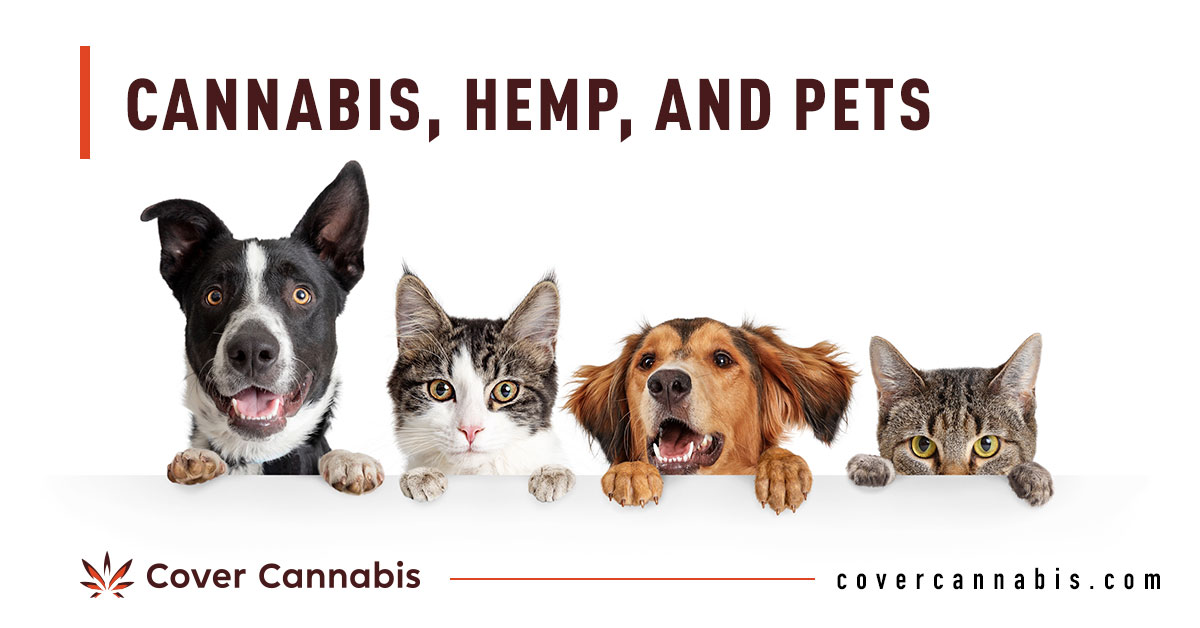


As more states are legalizing cannabis, it has led to a surge in cannabis-based products for both people and their pets. The pet market has been projected to be the fastest growing CDB sector in the industry, with an estimated sales reaching $125 million by 2022, which makes it very important to know about CBD and other hemp-based products.
Here is a list of topics that every fur parent should be aware of:
Vets receive a ton of questions from pet owners regarding the use of CBD animal products for various conditions. It’s important to note that the 2018 Farm Bill was passed but it did not automatically change state-by-state legality for hemp or CBD products. The responsibility to legalize or not was left to the individual States, and therefore the laws will vary depending on where the business is located.
When veterinarians prescribe, recommend, or administer products, it’s with the intent to treat, prevent, cure, or diminish a condition or a disease. According to the American Veterinary Medical Association (AVMA), “Products for animals for which therapeutic claims are made that have not been evaluated and approved by the FDA are unapproved animal drugs. Unapproved animal drugs are considered to be ‘unsafe’ under the FDCA, because they have not been shown to meet FDA standards for safety and efficacy for their intended use.”
The use of unapproved drugs can put pets at risk and creates legal accountabilities to vets who administer, prescribe, recommend, or dispense them. Also, the marketing of unapproved drugs or treatments can result in worsening a pet’s medical condition and increase the suffering of pets.
In a testimony by Dr. Amy Abernethy, FDA Principal Deputy Commissioner, before the US Senate in July 2019, stated that the Agency recognizes the need for “regulatory clarity, particularly given the significant public interest in hemp products, and CBD in particular.” Abernethy also stated that any manufacturer selling “any CBD food or purported dietary supplement products in interstate commerce” does so in violation of the Food, Drug, and Cosmetic Act (FDCA). She acknowledged that “FDA is considering the possibility of new legal pathways for CBD products.”
Furthermore, the FDA’s Center for Veterinary Medicine, animal products are regulated by the following:
Cannabis Sativa Linnaeus is a plant species that’s comprised of cannabis chemovars and cultivars with a wide range of concentrations of delta-9 tetrahydrocannabinol (THC is the psychoactive component of cannabis), cannabinoids (such as CBD-cannabidiol, CBG – cannabigerol, and CBN – cannabinol), as well as terpenes and omega 3 and 6 fatty acids. CBD is a nonintoxicating phytocannabinoids and unlike THC, it has a low affinity for CB receptors of the endocannabinoid system and has a unique ability to counteract the intoxicating and adverse effects of cannabis such as anxiety, hunger, tachycardia and sedation in mice and humans.
In December 2018, the Agriculture Improvement Act, also known as the 2018 Farm Bill, changed how some types of cannabis are scheduled by removing hemp (defined as cannabis and any derivative of cannabis with low concentrations – less than .3%THC) from the list of controlled substances under the CSA. The Farm Bill did not change anything that is related to animal food. As of today, hemp or any derivatives remain as “Unapproved Ingredients” for use in animal food of any kind or any species.
No. CBD or products that contain hemp have not been approved by the FDA for animal use. Also, the Dietary Supplement and Health Education Act of 1994 does not apply to products meant for animal use.
Regarding CBD and hemp-based products, the laws and regulations seem to change quickly and only time will tell when the FDA approves CBD for animal use, but for now…
Please contact Cover Cannabis today for more information on how to insure your cannabis business.